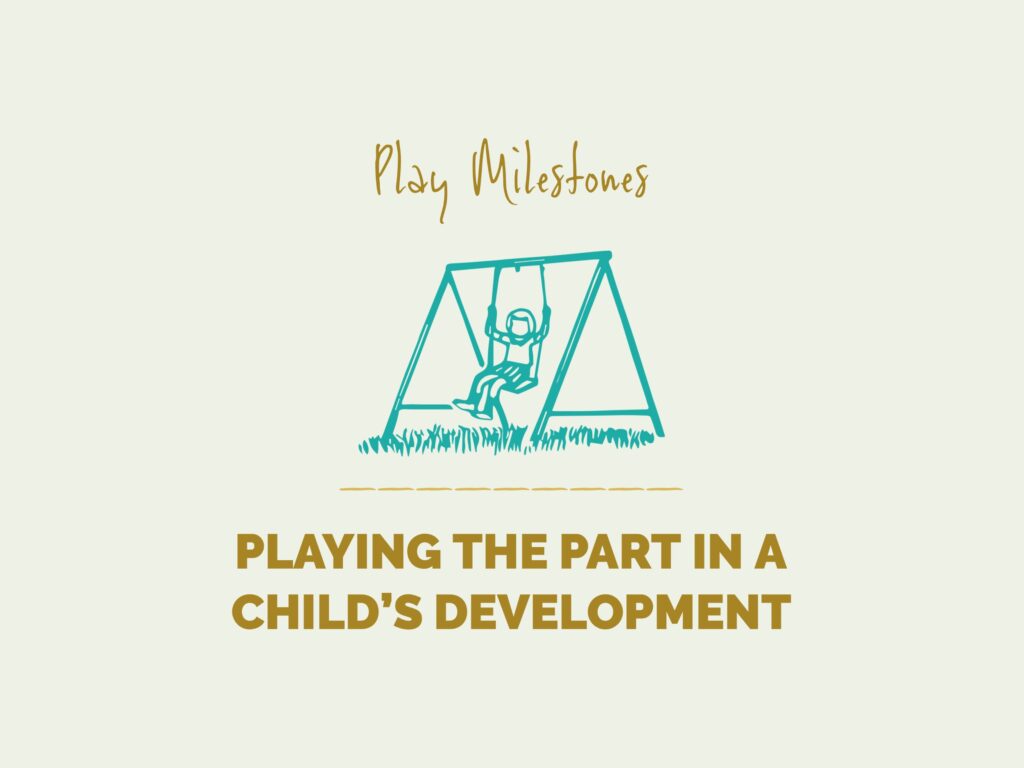
Playing is an important “occupation” of childhood as children explore the world around them and practice developing physical, social, emotional, cognitive and language skills. Just as a child reaches different developmental milestones such as when they learn to walk and talk, there are developmental stages associated with play skills. These skills are cumulative, building on each other.
Typically, children develop milestones around the same ages. Monitoring milestones can give insight into your child’s skill level and may help to identify any potential concerns. However, please note, each child is unique and may progress at a different rate.
Milestones and Playing
0 – 3 Months
Infants observe their surroundings and wiggle their arms, legs, hands, and feet to discover how the body moves. In addition, the infant learns to hold their head in order to look at you or objects that are close by.
3 – 6 Months
As the baby grows and develops, reflexes start to fade and more intentional movements and interactions develop. The baby will start to reach for objects, grab them, and mouth them. They will also begin to babble, taking turns “talking” to others. The parent or caregiver is the child’s favorite toy.
6 – 12 Months
As the baby continues to gain motor skills, they are able to hold more than one object at a time, transfer objects from one hand to another, pick up small items with a pincer grasp, roll, sit, and crawl. This expands their world and play possibilities! Play at this stage may be more repetitive as the child practices skills through trial and error.
1 – 2 Years
At this age, toddlers tend to play alone, not with others. They are focused on learning how objects are used and what items belong together. By 18 months, the toddler will start to use one realistic prop in play at a time. For example, they may carry around a phone and pretend to talk into it.
2 – 3 Years
The toddler will begin to notice peers that are playing nearby. Instead of joining, the toddler observes or plays next to their peers. When a simple turn taking game is structured, the child will interact with their peers for brief periods. For example, they can roll a ball back and forth or take turns putting a block on a tower. The toddler’s own play becomes more imaginative, using multiple props to act out multi-step familiar activities that they have experienced.
3 – 4 Years
As a preschooler’s language and social skills improve, their play starts to include other children. Periods of cooperative role play emerge and increase in duration over the year. The child also moves into using small figurines and object substitution as well as taking on roles of being someone/something else in their schemes. Pretend play can include activities that have been observed but not directly experienced.
4 – 6 Years
The child’s play continues to evolve in complexity including creating novel or fantasy plots. Some play schemes may be carried over from one day into the next. The child can understand rules and turn-taking well enough to play simple board games.
Play is not only fun but it is vital for a child’s development, allowing them to master some motor, language, social, thinking, and emotional skills. Taking the time to model play with your kids and encouraging them to play is a great investment in their future!
If you have concerns about your child’s development or play skills, view our therapy services to see how Enablr can partner with you.
Reference
Zero to Three (n.d.). The Development of Play Skills From Birth to 3. Retrieved from https://www.zerotothree.org/resources/series/the-development-of-play-skills-from-birth-to-3


